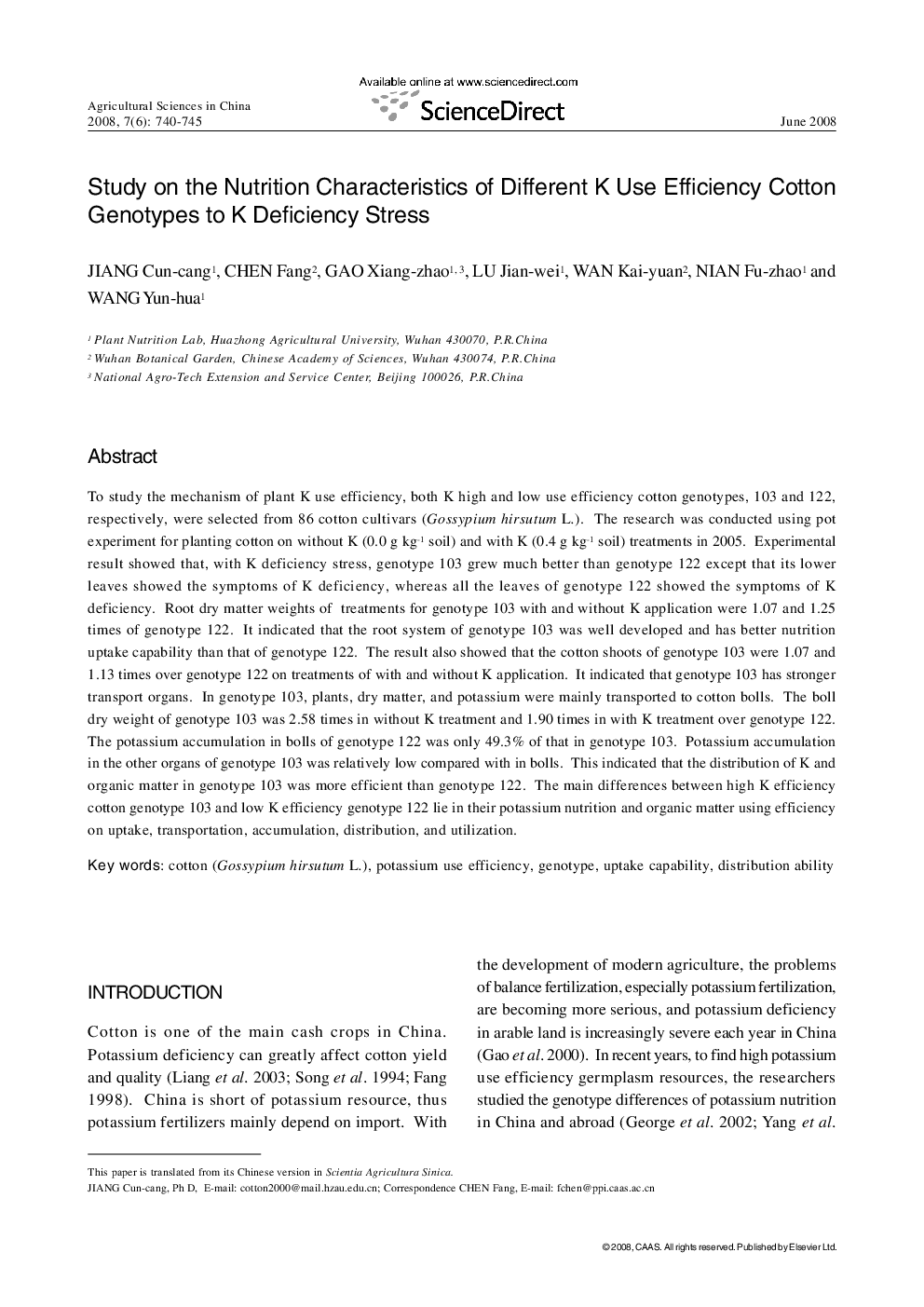| Article ID | Journal | Published Year | Pages | File Type |
|---|---|---|---|---|
| 4490590 | Agricultural Sciences in China | 2008 | 6 Pages |
To study the mechanism of plant K use efficiency, both K high and low use efficiency cotton genotypes, 103 and 122, respectively, were selected from 86 cotton cultivars (Gossypium hirsutum L.). The research was conducted using pot experiment for planting cotton on without K (0.0 g kg−1 soil) and with K (0.4 g kg−1 soil) treatments in 2005. Experimental result showed that, with K deficiency stress, genotype 103 grew much better than genotype 122 except that its lower leaves showed the symptoms of K deficiency, whereas all the leaves of genotype 122 showed the symptoms of K deficiency. Root dry matter weights of treatments for genotype 103 with and without K application were 1.07 and 1.25 times of genotype 122. It indicated that the root system of genotype 103 was well developed and has better nutrition uptake capability than that of genotype 122. The result also showed that the cotton shoots of genotype 103 were 1.07 and 1.13 times over genotype 122 on treatments of with and without K application. It indicated that genotype 103 has stronger transport organs. In genotype 103, plants, dry matter, and potassium were mainly transported to cotton bolls. The boll dry weight of genotype 103 was 2.58 times in without K treatment and 1.90 times in with K treatment over genotype 122. The potassium accumulation in bolls of genotype 122 was only 49.3% of that in genotype 103. Potassium accumulation in the other organs of genotype 103 was relatively low compared with in bolls. This indicated that the distribution of K and organic matter in genotype 103 was more efficient than genotype 122. The main differences between high K efficiency cotton genotype 103 and low K efficiency genotype 122 lie in their potassium nutrition and organic matter using efficiency on uptake, transportation, accumulation, distribution, and utilization.
